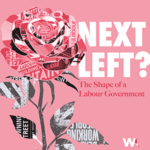A change of government can be a daunting prospect for brands seeking to protect and enhance their reputations amidst shifting national priorities, policies and regulations.
In this age of rolling news and trigger-finger social media, there is a real risk of corporate announcements becoming politicised in the febrile months immediately before and after an election.
So we thought we’d draw on our experience – and that of our media network – to find ways through this critical period.
We asked two senior journalists for their views on two contrasting scenarios:
- What should brands do if they inadvertently become a political football in the election period?
- How can organisations connect with media if they are struggling to find airtime?
Our huge thanks to Caroline Wheeler, Political Editor, The Sunday Times, and Sam Rix, Senior News Editor, Good Morning Britain, for sharing their thoughts, as part of our ‘Navigating the media in an election year’ breakfast.
How to respond if you find yourself in the eye of the political storm?
As the American newspaper publisher-turned-showman P. T. Barnum reportedly said: “There’s no such thing as bad publicity.” But try telling that to your comms team when your organisation is unintentionally drawn into the storm.
Our panel gave three clear recommendations to help.
1. Create bespoke packages for your most influential media
As a Sunday newspaper Editor, Caroline Wheeler lives and breathes exclusives. For her, the key to successful brand management lies in selective media engagement.
“My view is that blanket coverage which is out of control will be more difficult, if you do get into trouble with the media” she said. “Who are the audiences you want to target? What is your messaging? What is the media going to be interested in?
“Build a bespoke package for key media so you have control over that coverage. If you put out blanket coverage, it tends to fuel the news cycle. Careful management will be more effective in shutting down the news story. There will be one more day of it, but you feed the beast once in a compelling way.”
She cited the example of Henry Staunton, the former Post Office chairman, who put a bombshell under the Department of Business and Trade with one carefully crafted Sunday Times interview.
2. Don’t be too defensive
Journalists will assume they are onto something if your comms team is too defensive – all the more so if that turns to outright hostility.
“There is always defensiveness from people who have not been in the [media] industry and defensiveness tends to perpetuate the story rather than shut it down,” Wheeler said.
3. Respond quickly to frame how the story is told
There are times when putting your head above the parapet is ill-advised. But if you know that a story has legs, it often pays to engage. Sam Rix said that early intervention is best, to frame how your story is being told in the media.
“A quick response that will help frame the narrative is important,” Rix said. “You tell your story first, before the media do. Frame the narrative and make it your story.”
How to get your story heard during a busy election campaign?
Many a PR will agree with Oscar Wilde when he wrote: “There is only one thing in life worse than being talked about, and that is not being talked about.”
Seasoned journalists gave us their views on how communications professionals stand the best chance of getting heard during the election tumult.
1. Make sure to build relationships with key media
When space is short and competition for stories even more intense, personal relationships become even more important.
“It is good to have contacts in the media before we get to an election. Go to events, invite a prominent journalist to come to your event, to establish your own network. It’s important to build relationships.” Wheeler said.
2. Make sure you have a compelling story to tell
At a time when media interest can become myopic, if you are able to present interesting, counter-intuitive information, then you stand a decent chance of having your voice heard.
“The old adage is true: dog bites man is not an interesting story, but man bites dog is. Have you got a narrative that is going to solicit interest?” Wheeler said.
3. Commission polling or focus groups to provide information a journalist can use
Polling or focus group work only gains in importance at election time. If you can find the resources to pay for national polling on interesting issues you might well cut through the noise. Especially if you can pay for those expensive constituency-level surveys.
“Providing that added value is a very good thing. Many newspapers can’t afford to do any polling in a consistent way. If you can commission a piece of polling, that might help,” Wheeler said.
Before joining WA, Philip spent more than a decade as a senior journalist at The Times, including more than five year’s as the paper’s Transport Correspondent.
NEXT LEFT? THE SHAPE OF A LABOUR GOVERNMENT
This article is part of our Next Left series, which examines the people and policies that will shape the next government if Labour wins power – explore the guide in full here.
